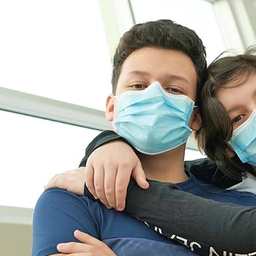Virtual Driving Assessment: Preparing Teens to Drive Safely
Simulated driving assessments being piloted at select CHOP Primary Care locations gauge a teen’s ability to drive safely and avoid crashes.
Showing 1431 - 1440 of 1591 results
Simulated driving assessments being piloted at select CHOP Primary Care locations gauge a teen’s ability to drive safely and avoid crashes.
These general guidelines and fact sheets can help you maintain proper car seat safety and choose the most appropriate car seat for your child.
Dr. Yoav Dori discusses advanced technologies he and his team developed to diagnose and treat life-threatening diseases of the lymphatic system, on the podcast series Breaking Through with Madeline Bell.

Why the COVID-19 vaccine is safe and why children and teenagers need it now.
Spreading the word about CHD is vital to educating the public as a step towards improving care and fueling scientific research.
Heat stroke can occur if a child is left unattended in a vehicle, even on a mild day. Find helpful tips on how to protect your child against heat stroke.
Generally, dental examinations and cleanings are recommended every six months for children. Encourage good oral hygiene at home by helping your child brush his or her own teeth.
The website provides information about epilepsy, news and special events, and programs and resources for patient and families.
We don’t mean it in the “it’s all in your head and you’re crazy” way, but in an actual, real, this-is-how-your-body-was-designed way. For you to experience pain as you know it, a signal from the body has to actually reach your brain. Pain is your body’s warning alarm system letting you know that something might be wrong, and that you should pay attention in case you need to do something to keep yourself safe or prevent some damage to your body.
Did you know? Kids aged 6-12 need 9-12 hours of sleep a night. Teenagers aged 13-18 need 8 to 10 hours.